They serve as observation points, focus areas, leverage points, transition energy and flow experiences.
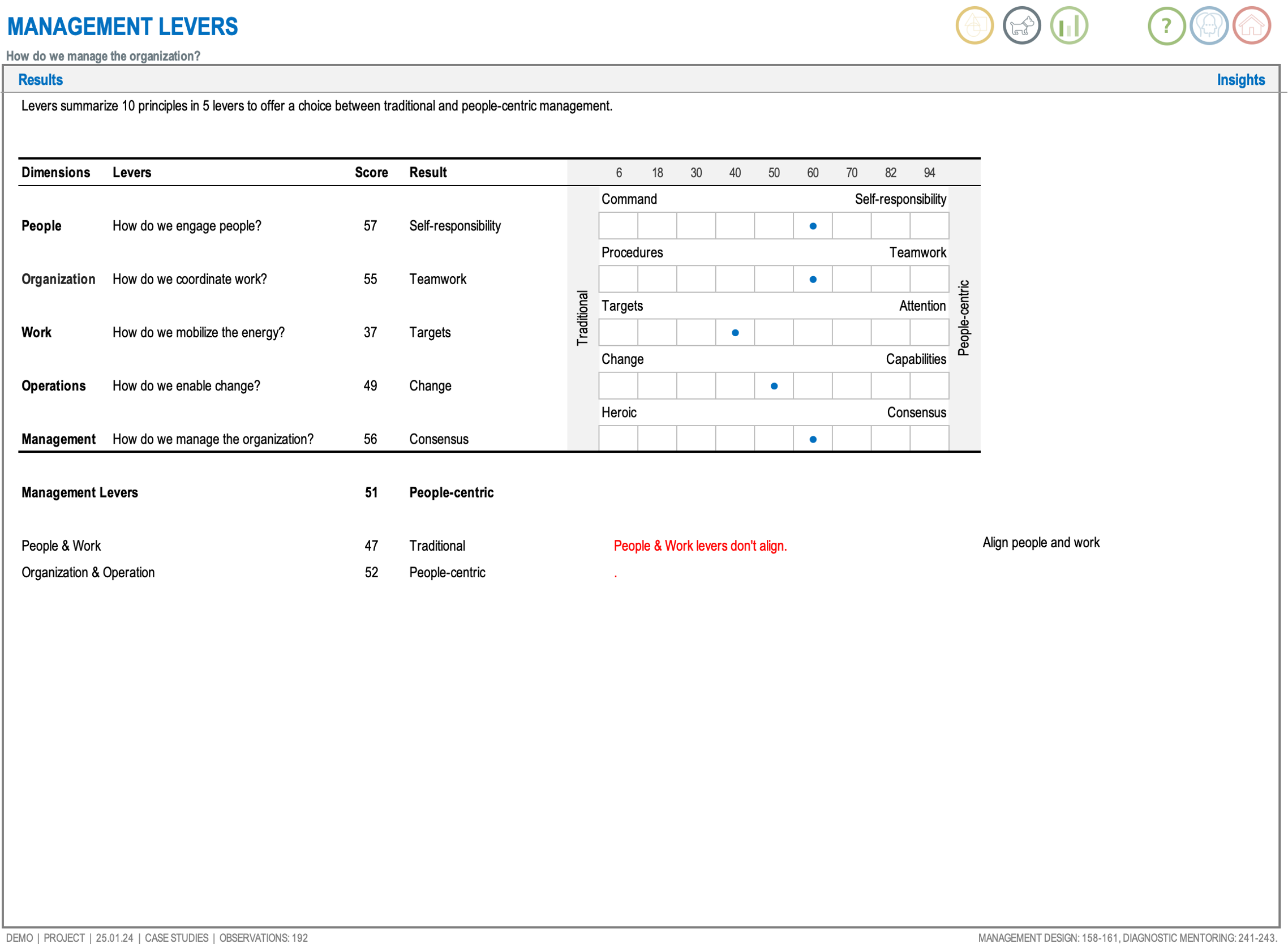
22 modules with 99 elements provide insights for the review of assumptions, principles, potential and interference.
Example: Management Levers
Observation Point Modules: Corporate, People: Speed, Work: Resilience, Purpose Strategy, Relationship Strategy, Collaboration Strategy, Organisation: Agility, Dynamic Capabilities, Success, Performance Triangle, Agile Diamond, Agile Energy, Leadership Scorecard, Management Levers, Expanded Management Levers, Management Model, Context Levers, Decision-Making, Management Context, Organization Form, Accountability, Capabilities: Potential and Interference
25 modules offer projections for the design with gaps and key issues.
Example: The Choice of Tools
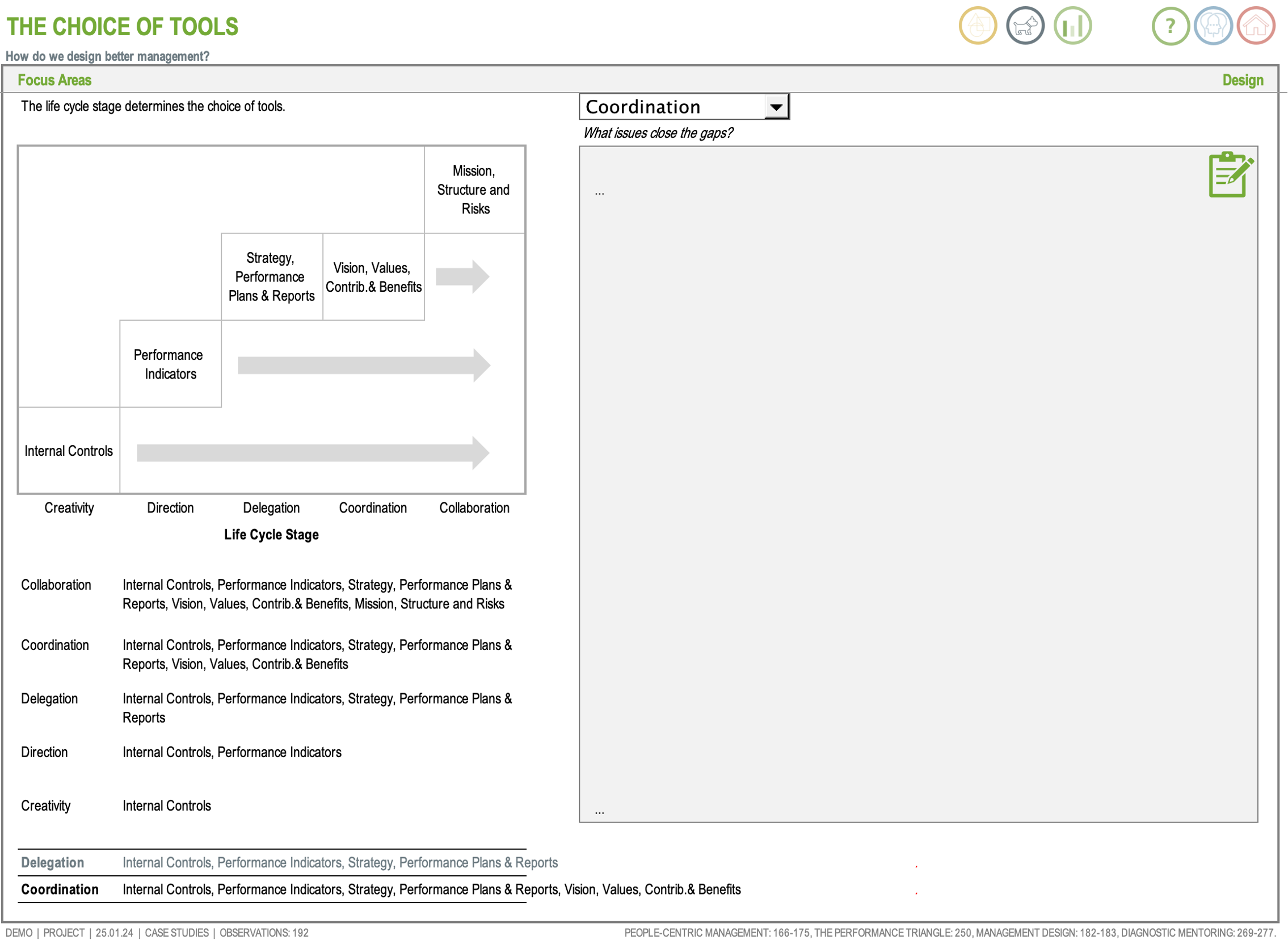
Focus Area Modules: Design Space, Design Priciples, Strategy, The Leadership Toolbox, The Choice of Rules, The Choice of Routines, The Choice of Tools, The Choice of Interactions, Four Challenges, The Bridge: Design Principles, Management Design, Operating Model, The Design of Rules, The Design of Routines, The Design of Tools, The Design of Interactions, Leadership Style, Organization Form, Organization Design, Accountability, Decision-Making, Babushka, Delegation, Decisions, Design Gaps and Key Issues
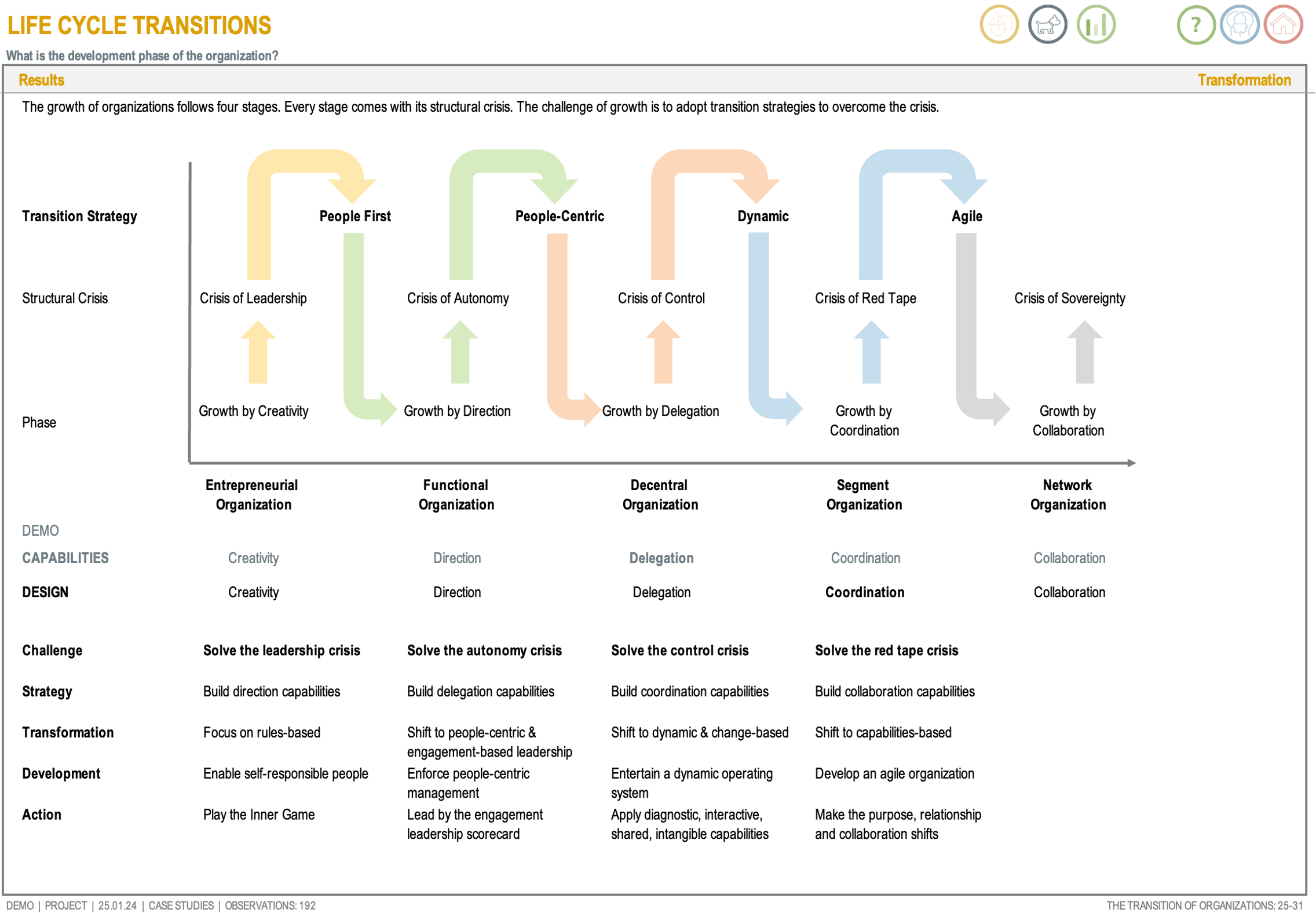
14 modules enable the transformation of capabilities through initiatives.
Example: Life Cycle Transitions
Leverage Point Modules: Transformation Space, Life Cycle Transitions, Development Path Initiatives, Intervention Points, Intervention Levers, Capability Initiatives, Management Model Initiatives, Decision-Making Initiatives, Management Context Initiatives, Leadership Style Initiatives, Operating Model Initiatives, Development Path Initiatives, Organizational Initiatives, Transformation: Initiatives
Nine modules support the development of capabilities with the roadmap.
Example: Competitive Advantage
Transition Energy Modules: Roadmap, Management Index, Maturity Levels, Competitive Advantage, Capabilities, Value Creation, Sustainability, Levels of Sustainability, Navigation
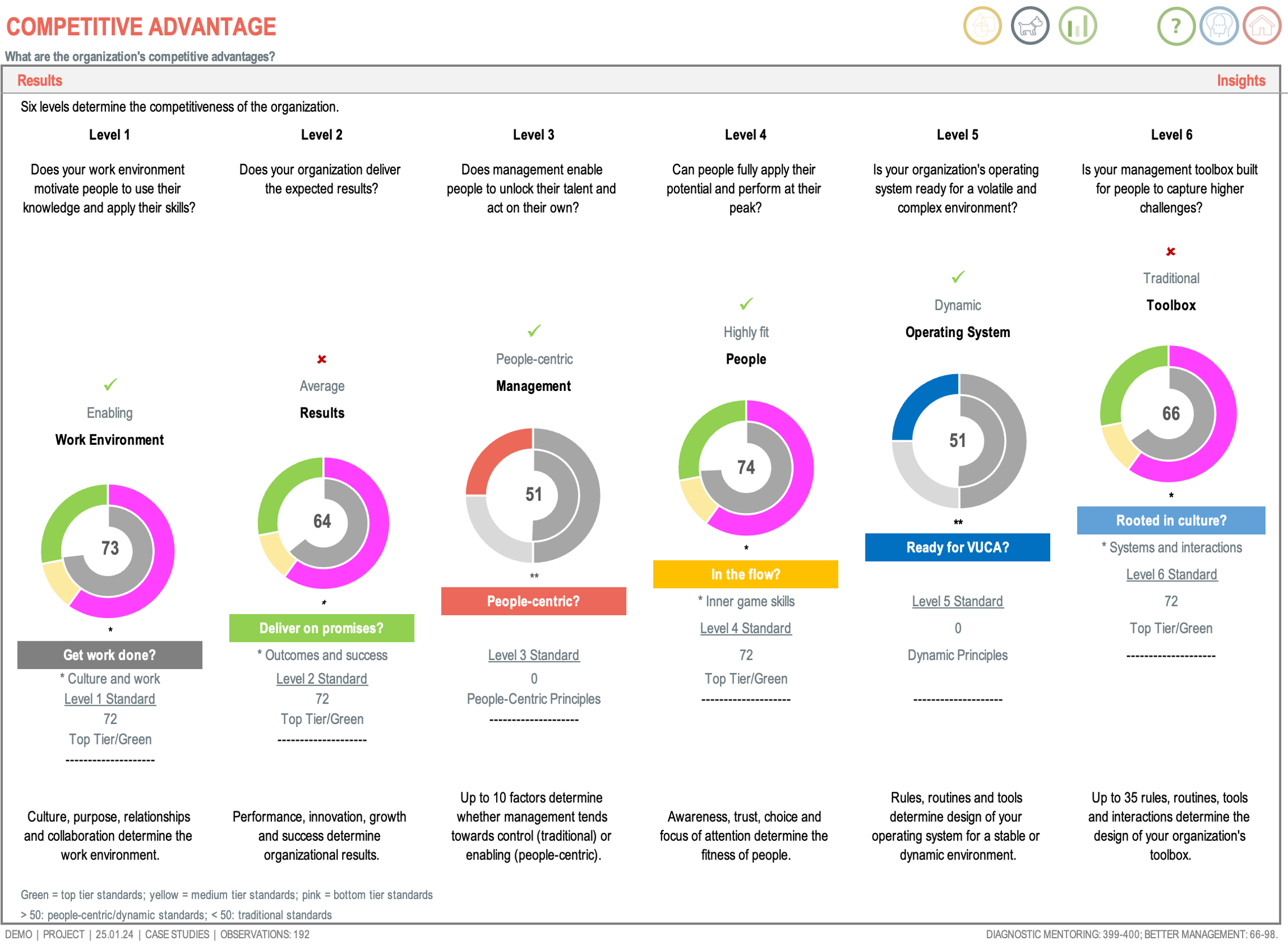
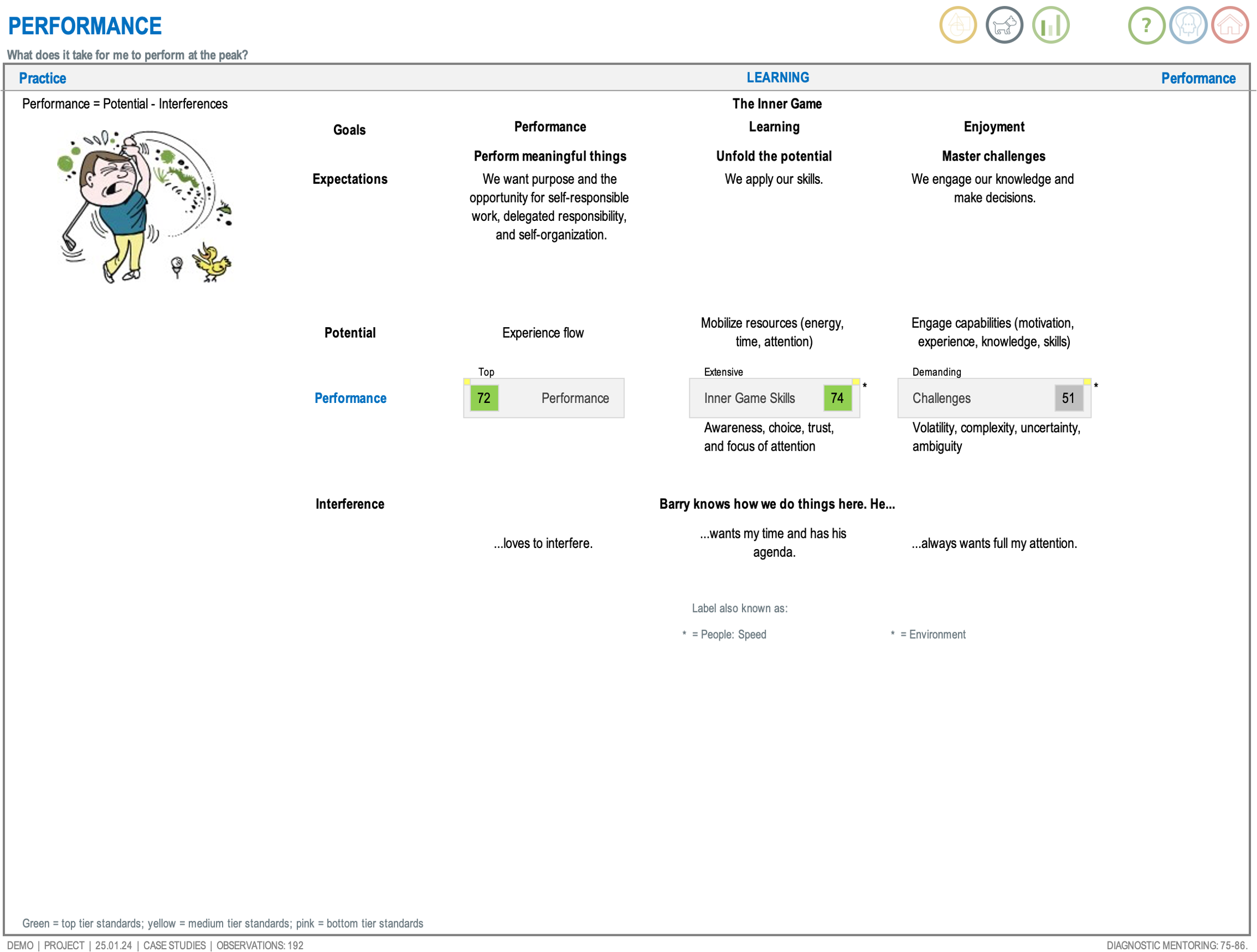
12 modules expedite the learning for superior performance.
Example: My Performance
Flow Experience Modules: Experience, Goals, Performance, My Flow, Management Principles, People-Centric Levers, Operating Modes, Leadership Scorecard, The Leadership Toolbox, Personal Roadmap, Performance, Management and Organization
18 modules guide design and development.
Example: Classification
Appendix Modules: Table of Content, Solution, Project, Glossary, Classifications, Book Index, Competitive Advantage, Perspectives, Utility, Board, CEO Office, CEO Office, Operations, Operations, Leadership Team, Leaders, Team, People, Services
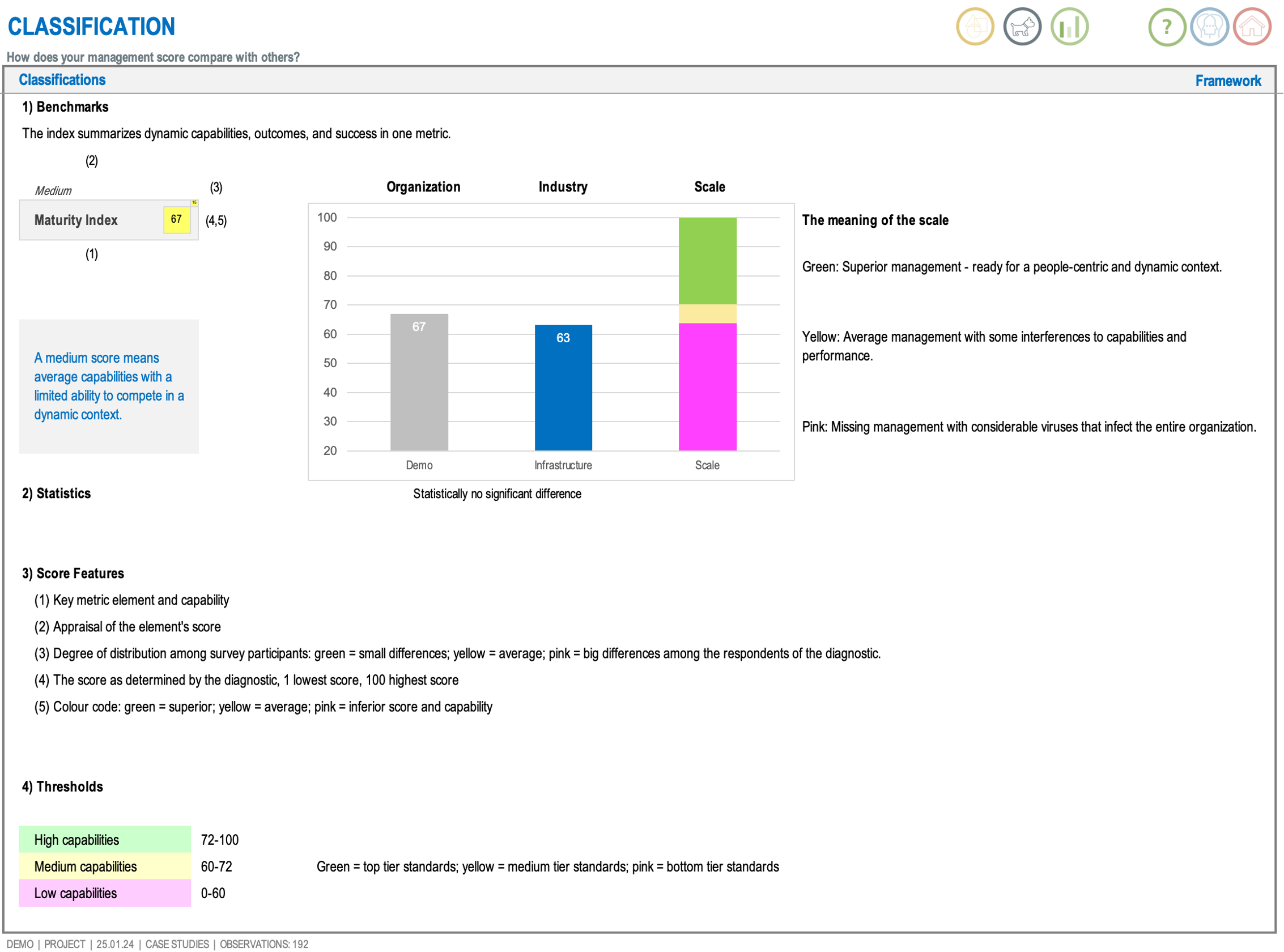
Better management leads to superior outcomes and a competitive advantage. Muddling through is no option. The evidence is overwhelming. Organization Twins stimulate growth, reduce costs, increase speed and limit risks for every organization.
Learn more. Talk to our PARTNERS.